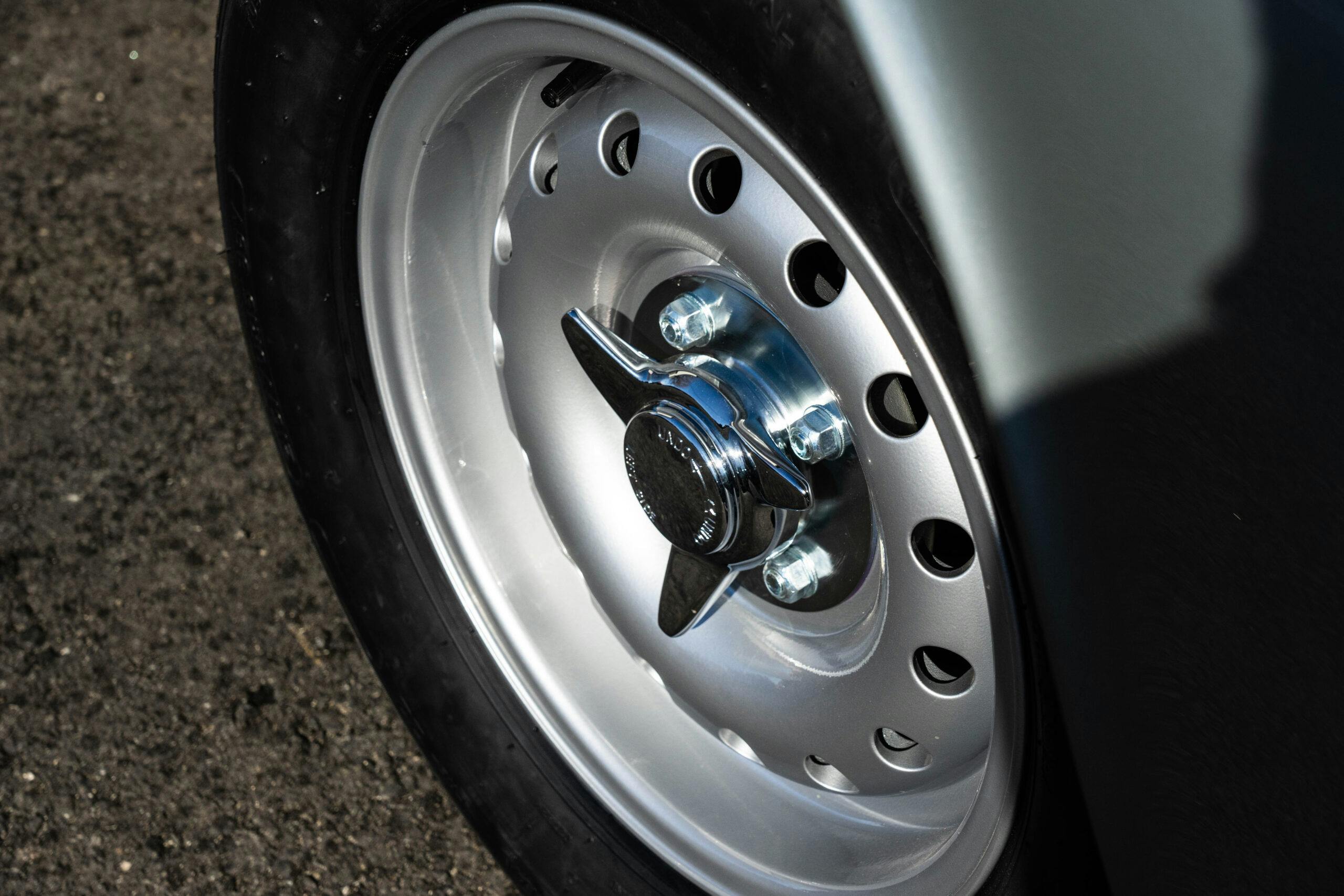From Unknown to Icon: The Gordon-Keeble GT's Transformation into a Classic Legend

It’s not every day you come across a car with such an intriguing juxtaposition of branding and power. While Rolls-Royce flaunts its Spirit of Ecstasy and Dodge warns with its menacing Ram, the Gordon-Keeble GT proudly sports a tortoise emblem. At first glance, this seems an odd choice, especially for a name as seemingly mundane as Gordon-Keeble. But delve into the history and engineering of this classic, and you’ll discover the clever metaphor rooted in Aesop’s Fables: it’s the tortoise that wins the race, driven by the potent heartbeat under its hood.
Forget the staple British straight-six engines; the heart of the Gordon-Keeble GT is a roaring 327 cubic inch Corvette V-8. This engine choice was revolutionary, channeling American muscle through a British chassis to create a truly unique grand tourer. Its styling was equally revolutionary, crafted by an early Giorgetto Giugiaro, who would later achieve fame designing the De Tomaso Mangusta and Maserati Ghibli. The car’s Italian-designed, British-built essence turns heads as effectively as any Ferrari 250 GT Lusso could.
The Birth of a Legend
Gordon-Keeble’s story began with managing director John Gordon and racing engineer Jim Keeble, each bringing a unique expertise to the table. In 1959, Gordon was struggling with the financially beleaguered Peerless car company, while Keeble was innovating with high-performance engines. Their paths crossed when a U.S. fighter pilot requested to fit a Corvette V-8 into a Peerless GT. The momentous meeting led to the creation of a new automobile brand.
Keeble built the engineering underpinnings while Gordon sought aesthetic perfection. At the Turin auto show, Gordon found the perfect partner in Bertone. The forward-thinking Giugiaro, just 21 years old, sketched a gorgeous, restrained GT shape. The first prototype, featuring a steel body and a 4.6-liter V-8, debuted to great acclaim at the 1960 Geneva auto show and received glowing praise in Autocar, which described it as “the most electrifying vehicle we have ever tested.”
A Rollercoaster Journey
The prototype’s success prompted further tests and a demonstration tour in the United States. Zora Arkus-Duntov of Chevy Corvette fame reportedly declared it superior to his beloved 'Vette, securing the supply of 327 small-block V-8 engines from General Motors. This was a major milestone that propelled the fledgling company forward.
Unfortunately, the initial success was fleeting. Supply chain issues and financial woes forced John Gordon out and led to the company’s downfall in 1965. Although revived with fresh investment, it faced bankruptcy again by 1967. The final car, built in 1971, was a culmination of remaining spare parts, marking the end of Gordon-Keeble productions, with an estimated 100 cars completed.

Preserved Legacy
Despite its brief production run, the Gordon-Keeble’s legacy survives, thanks to the passionate efforts of its owners and the dedicated Gordon-Keeble owners club. The club has played a key role in not just preserving but enhancing these beautiful machines. A prime example is chassis number 61, lovingly restored by Paul Holland’s team over four years. This particular car is now perhaps the finest example of its kind.
Today, chassis number 61 proudly flaunts its pristine condition, courtesy of extensive work on everything from mechanical refurbishments to meticulous chrome alignments. The Corvette V-8 roars to life with a rumble that belies its tortoise insignia, a nod to legendary racer Tazio Nuvolari’s good luck charm and a reminder of the car’s understated power.

A True Grand Tourer
The experience behind the wheel reaffirms the Gordon-Keeble’s grand tourer credentials. With a four-speed T-10 manual gearbox, it offers an exhilarating drive, easily reaching highway speeds in around six seconds and touching a top speed of over 140 mph. Its disc brakes provide sure-footed stopping power, and its meticulously restored steering and suspension make for a composed and thrilling ride.
Unlike many vintage sports cars, the Gordon-Keeble doesn’t suffer from truck-like handling. It combines its Corvette power with an elegance in driving dynamics, proving once again that sometimes, it’s the tortoise that stands victorious. This legacy is a testament to innovative design and passionate preservation, enshrining the Gordon-Keeble as one of the automotive world’s hidden gems.
Check out more intriguing automotive stories on Hagerty Media, or subscribe to our newsletters for the best articles delivered straight to your inbox.